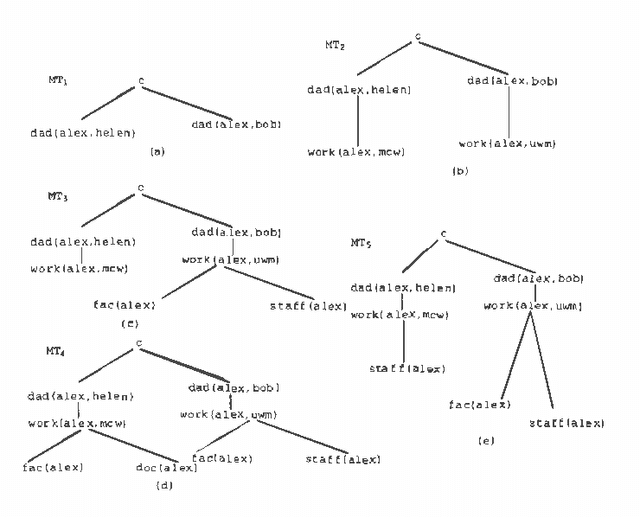Probabilistic Disjunctive Logic Programming
Paper and Code
Feb 13, 2013
In this paper we propose a framework for combining Disjunctive Logic Programming and Poole's Probabilistic Horn Abduction. We use the concept of hypothesis to specify the probability structure. We consider the case in which probabilistic information is not available. Instead of using probability intervals, we allow for the specification of the probabilities of disjunctions. Because minimal models are used as characteristic models in disjunctive logic programming, we apply the principle of indifference on the set of minimal models to derive default probability values. We define the concepts of explanation and partial explanation of a formula, and use them to determine the default probability distribution(s) induced by a program. An algorithm for calculating the default probability of a goal is presented.
 Add to Chrome
Add to Chrome Add to Firefox
Add to Firefox Add to Edge
Add to Edge